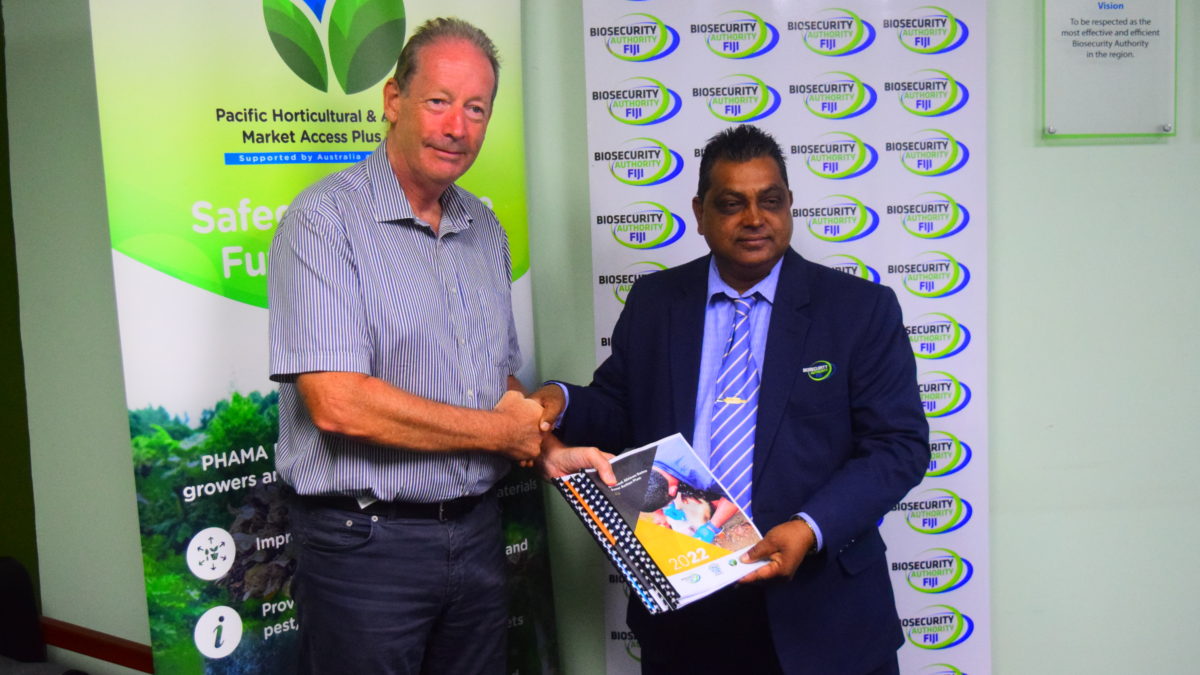The Biosecurity Authority of Fiji (“BAF”) with the assistance of Pacific Horticultural & Agricultural Market Access Plus Program (“PHAMA Plus”), the Ministry of Agriculture (“MOA”) and other stakeholders pulled resources to develop an Action Plan to keep Fiji safe African Swine Fever (“ASF”) and boost preparation in the event of any possible outbreak. The official handing over the documents to BAF was done on 12 April 2022.
The documents handed over include:
1. National ASF Action Plan for Fiji
2. National Implementation Plan for National ASF Action Plan
3. ASF Response Strategy for Fiji
4. Biosecurity Code of Practice for Rearing Pigs in Fiji
5. Discussion paper on “Relief Recovery Mechanisms Emergency Animal Disease Outbreaks”
The Action Plan and related documents guide the implementation of nationally agreed actions for a strategic and risk–based approach to enhance Fiji’s ability to prevent the introduction of ASF, detect it early if it is introduced and to prepare for a swift response. ASF is a highly contagious viral disease that affects and kills wild and domesticated pigs. The disease
is transmitted through direct contact with infected pigs and indirect contact through ingestion of contaminated feed and fomites (clothes, vehicles and farming equipment). With no vaccine or known cure, ASF has been identified as one of Fiji’s top animal health priorities in recognition of the potential to severely impact on commercial and subsistence pork production, as well as our social and cultural environments.
In November 2020, BAF signed an MOU with PHAMA Plus to support Fiji’s preparedness in case of ASF.
“Over the past two years, Fiji has worked hard on implementing necessary precautions against ASF mainly for preventing entry into the country. Our collaboration with PHAMA Plus and MOA helps to boost those precautionary measures and improve border security as well as capacity building for emergency preparedness,” BAF Acting Chief Executive Officer Surend Pratap said.
“As part of our collaboration, PHAMA Plus assisted BAF to procure PPE, disinfectants and
surveillance equipment in order to enhance Fiji’s preparedness mainly to respond during an
outbreak situation. Additionally, countrywide training programs were conducted for the animal
health workforce that represents BAF and MOA. In the same note molecular diagnostic capacity of BAF animal laboratory was also enhanced with this project and BAF team now able to diagnose ASF with methods of ELISA, PCR and Rapid test kits. Farmer training and awareness programs were also conducted from the commercial level to the subsistence level around the country to raise farmer awareness about ASF.”


